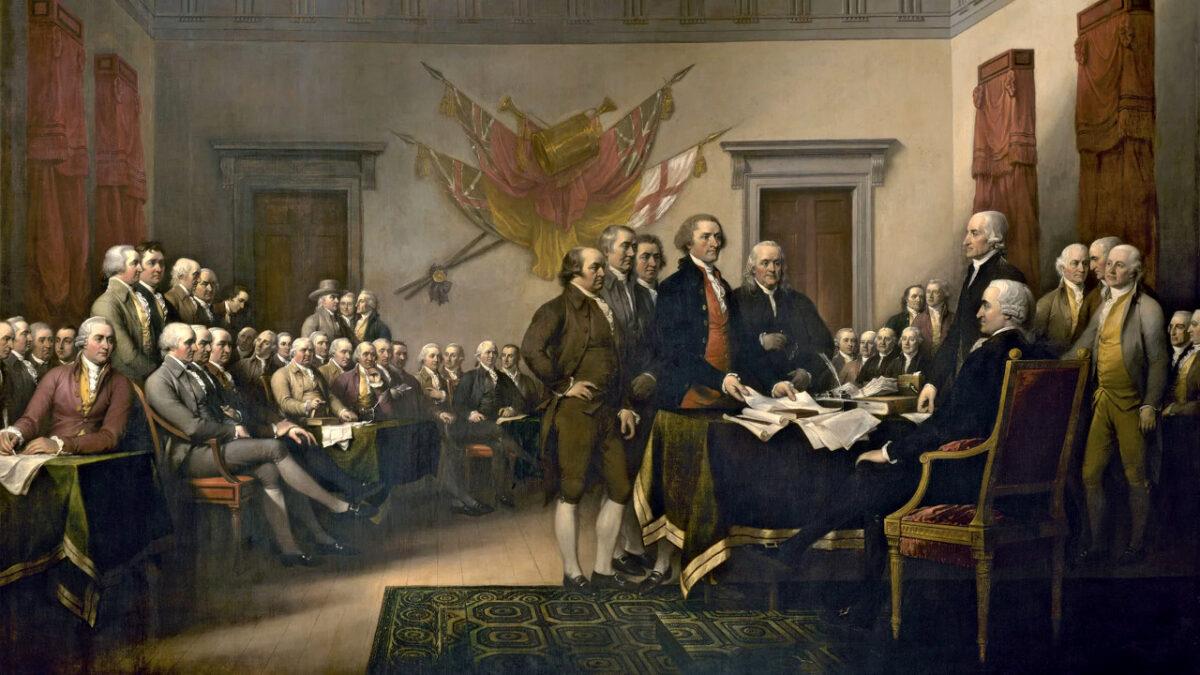Great men and women as they mature and rise to positions of leadership within their families, their businesses, in the professional world and hopefully in government, develop systems within their minds and souls that help them make difficult decisions. I am talking of course about serious-minded people.
Our Founding Fathers were serious people. Early on in the course of their deliberations in Philadelphia that resulted in our Great Declaration, they discerned the difference between “Providential Issues” that were informed by God’s Natural Law, and “prudential” issues that were informed by prudence and common sense. From those early days of the Continental Congress until today, sessions were begun with daily prayer, acknowledging the position of “supplicant” that we all have before our Creator. Once acknowledged the process of practicing humility and gratitude becomes much easier.
Washington prayed daily as did both Roosevelts. Lincoln was devout in his faith and probably was a Biblical theological expert. After Fredericksburg and Chancellorsville and victory for the North was in serious jeopardy, he was approached by a young girl who asked—”is God on our side?” His response reflected his faith and devotion—”Madam, the question is not whether God is on our side, the question is are we on God’s side”.
Issues involving human life, issues that impact on the nature of what it is to be human and the sanctity of being human—slavery, war, right to life, gender and identity require a Providential approach. Such an approach of discernment was explained to me by my Quaker Grandmother:
First one must make a habit of prayer. By making it a habit, it makes it less difficult to pray under difficult circumstances.
Secondly one must be devoted and make oneself facile in trying to understand scripture. It is scripture that informs us first of all the rules by which we interact with God and each other—including our laws that are the bases of our legal system and the unwritten social norms that are the grease that lubricates all our interactions every day.
Then we must develop traditions and habits that will inform us in difficult times. These traditions are embedded in what we call “the social fabric” of all civilizations.
The 4th step is to use life experiences to inform us about decisions in the present. These can be good or bad experiences. “Don’t make the same mistake twice.”
Finally, our emotions are gifts from God that serve many purposes from “fight and flight” , love, empathy and compassion—there is a big difference between the two read the Beatitudes.
It has been my impression that less than serious people use life experiences and emotions too often. These are the least likely to be helpful when making difficult decisions as they are “subject to self-editing”. They are at the bottom of my list for coming to a contemplative and faithful decision. Too many progressives today rely too much on emotion and not enough on reason—think AOC and “the Squad”.
For “prudential issues”—building roads and infrastructure, deciding on a business plan for a company, , or a mother deciding what clothes to buy for her children or what to eat for dinner, the process is grounded more in logic than in faith and therefore requires prudence and not necessarily Providential guidance.
What happens with so many of our politicians, and many people who become addicted to politics, is that we make politics our religion. Every decision at City Hall or in the legislature becomes “Providential”. This just isn’t the case. It demeans those important decisions that require discernment and faith and conflicts the difference between what is important and not.
On this fourth of July let us all assume a position of supplication before Almighty God. Just as our Founders did. Just as many great leaders in our past history did and hopefully our leaders today will continue to do. Just as mothers and fathers do when praying about their families—surely one of the most Providential causes in anyone’s life.
Let’s remember that we are all called on to serve, to confront evil, and when given an opportunity to ask for God’s Grace and Mercy when making Providential decisions, we do so and that we embrace the discipline of “discernment”
Finally, on this Fourth of July let us reflect on what those Providential ideas are. What about liberty and freedom that come to us directly from God’s second greatest gift to man—”free will”? What about the fact that “all men are created equal…. and that we are Endowed by our Creator with certain unalienable rights—life, liberty and the pursuit of happiness”? All described in the same document as “Providential truths”.
These Providential issues are worthy of our attention, worth fighting for, and just as importantly worth praying for. Our Founding Fathers put their lives on the line—they all became hunted fugitives of King George for 5 years. The Providential Truths designed in their hearts and written in our Declaration are today worthy of a similar commitment.
God Bless America and Happy Fourth of July.



2 replies on “Happy Fourth of July”
INDEPENDENCE DAY ALERT!
To discover whether Independence Day is something Christians should be celebrating, see free online book “Biblical Examination of the Declaration of Independence: Declaration of Liberty vs. Declaration of Independence” at https://www.bibleversusconstitution.org/declaration/declaration-index.html
The Declaration is no more biblical than is the Constitution.
See free online book “Bible Law vs. the United States Constitution: The Christian Perspective,” in which every Article and Amendment is examined by the Bible, at https://www.bibleversusconstitution.org/BlvcOnline/blvc-index.html
Find out how much you really know about the Constitution as compared to the Bible. Take our 10-question Constitution Survey in the sidebar and receive a free copy of the 85-page “Primer” of “BL vs. USC.”
PATRIRARCHAL THEOCRCIES ARE OF THE OLD TESTEMONT.
WE LIVE UNDER THE NEW COVENANT.
THE CRITICAL MORAL RELATIONSHIP IS BETWEEN GOD AND MAN AND 9NLY MORAL MEN CAN SUCCESFULLY EX3CUTE A SYSTEM OF GOVERNANCE THAT SECURES INDIVIDUAL LIBERTY AND SOVERNTY BASED ON EXERCISING THEIR OWN FREE WILL